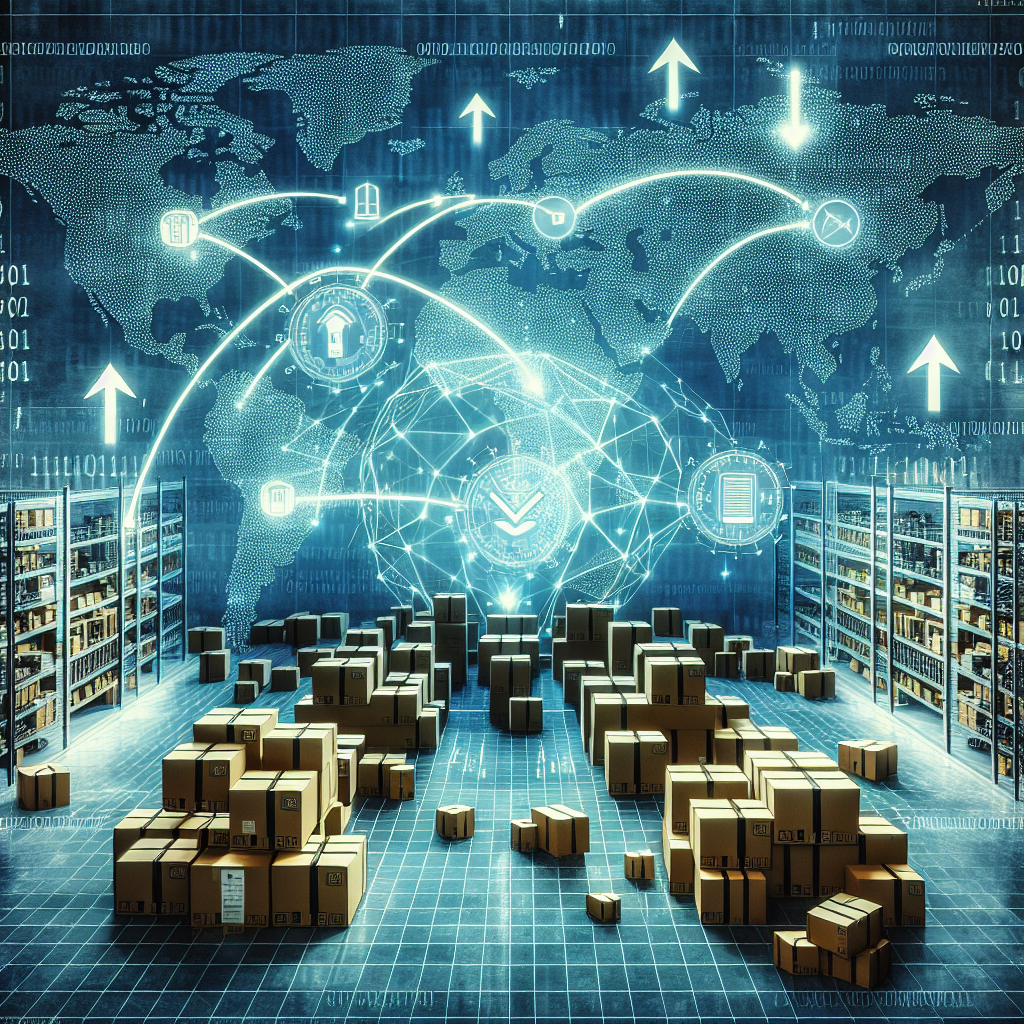In today’s fast-paced business world, supply chain collaboration and communication are more important than ever. With the increasing complexity of global supply chains, companies are looking for ways to improve efficiency, reduce costs, and increase visibility into their supply chain processes. One way that companies are achieving these goals is by utilizing artificial intelligence (AI) technology.
AI has the potential to revolutionize supply chain collaboration and communication by automating routine tasks, providing real-time insights, and enhancing decision-making processes. In this article, we will explore how AI is being used to improve supply chain collaboration and communication, the benefits of using AI in the supply chain, and some common FAQs about AI in supply chain management.
How AI is Improving Supply Chain Collaboration and Communication
1. Automation of Routine Tasks: One of the key benefits of AI in the supply chain is its ability to automate routine tasks such as data entry, order processing, and inventory management. By using AI-powered tools, companies can streamline their supply chain processes, reduce human error, and free up employees to focus on more strategic tasks.
2. Real-time Insights: AI can provide real-time insights into supply chain operations, enabling companies to make faster and more informed decisions. By analyzing vast amounts of data from multiple sources, AI can identify trends, patterns, and potential risks in the supply chain, allowing companies to proactively address issues before they escalate.
3. Enhanced Decision-making: AI can help companies make better decisions by providing predictive analytics and optimization tools. By leveraging AI algorithms, companies can forecast demand, optimize inventory levels, and identify cost-saving opportunities, leading to improved supply chain performance and profitability.
4. Improved Collaboration: AI-powered collaboration tools can facilitate communication and information sharing among supply chain partners. By providing a centralized platform for collaboration, companies can streamline communication, coordinate activities, and resolve issues in a timely manner, leading to greater efficiency and effectiveness in the supply chain.
Benefits of Using AI in the Supply Chain
1. Increased Efficiency: By automating routine tasks and providing real-time insights, AI can help companies improve the efficiency of their supply chain operations. With AI-powered tools, companies can reduce lead times, minimize inventory levels, and optimize transportation routes, leading to cost savings and improved customer service.
2. Enhanced Visibility: AI can provide companies with greater visibility into their supply chain processes, enabling them to track shipments, monitor inventory levels, and identify bottlenecks in real-time. By having a clear view of their supply chain operations, companies can make better decisions, mitigate risks, and respond quickly to changing market conditions.
3. Cost Savings: By optimizing supply chain processes, reducing human error, and improving decision-making, AI can help companies reduce costs and increase profitability. With AI-powered tools, companies can minimize waste, lower transportation expenses, and negotiate better terms with suppliers, leading to significant cost savings over time.
4. Competitive Advantage: By leveraging AI technology in the supply chain, companies can gain a competitive advantage by improving their operational efficiency, reducing lead times, and enhancing customer satisfaction. With AI-powered tools, companies can differentiate themselves in the marketplace, attract new customers, and retain existing ones, leading to increased market share and profitability.
FAQs about AI in Supply Chain Management
Q: What are some common AI applications in the supply chain?
A: Some common AI applications in the supply chain include demand forecasting, inventory optimization, route optimization, predictive maintenance, and supplier risk management.
Q: How can AI help companies improve collaboration with their supply chain partners?
A: AI-powered collaboration tools can facilitate communication, information sharing, and coordination among supply chain partners, leading to greater efficiency, visibility, and responsiveness in the supply chain.
Q: What are the challenges of implementing AI in the supply chain?
A: Some challenges of implementing AI in the supply chain include data quality issues, integration with existing systems, talent shortages, and resistance to change. Companies need to address these challenges to successfully leverage AI technology in their supply chain operations.
Q: How can companies measure the ROI of AI in the supply chain?
A: Companies can measure the ROI of AI in the supply chain by tracking key performance indicators such as cost savings, inventory turnover, on-time delivery, and customer satisfaction. By analyzing these metrics, companies can quantify the benefits of using AI technology in their supply chain operations.
In conclusion, AI has the potential to transform supply chain collaboration and communication by automating routine tasks, providing real-time insights, and enhancing decision-making processes. By leveraging AI technology, companies can improve efficiency, reduce costs, and increase visibility into their supply chain operations, leading to a competitive advantage in the marketplace. As companies continue to adopt AI in their supply chain management practices, they will need to address challenges, measure ROI, and stay abreast of the latest trends in AI technology to stay ahead of the competition.

